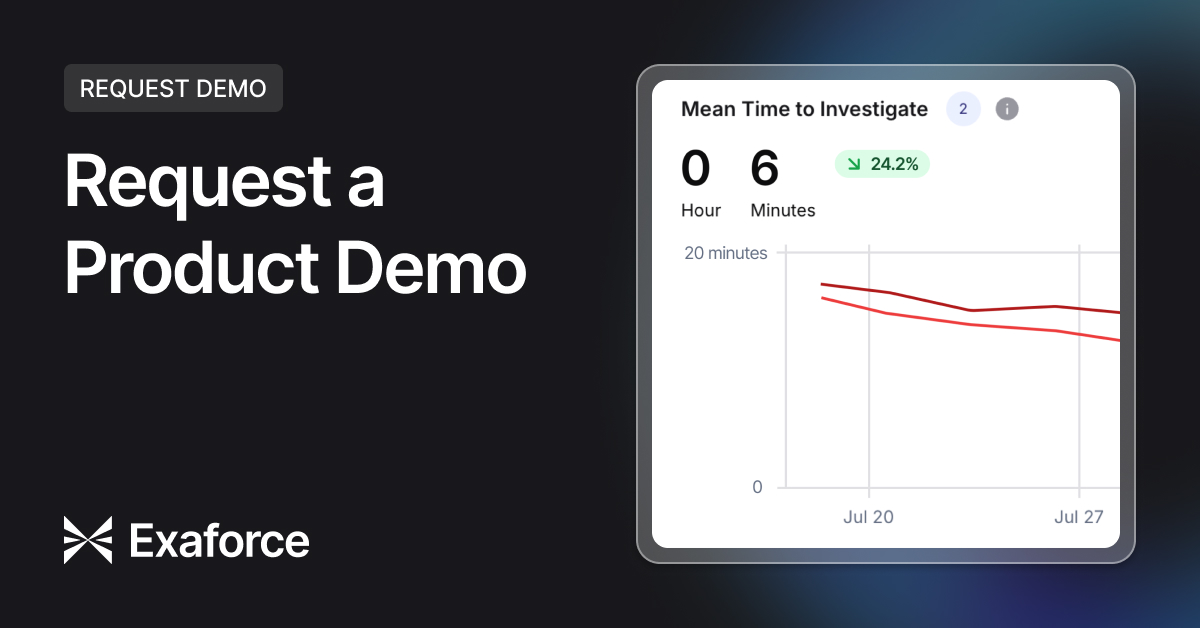Why Agentic AI is changing cybersecurity
Cybersecurity leaders are grappling with overwhelming alert volumes, evolving attack vectors, and chronic staffing shortages. Traditional SOC models often collapse under the weight of false positives, manual investigations, and siloed tools. That’s where agentic AI works in cybersecurity.
Agentic AI, or AI systems designed to reason, act, and adapt autonomously, promises to transform how SOC teams operate. Instead of just surfacing alerts, an AI SOC powered by agentic AI can triage, investigate, and even take first-response actions. This shift moves organizations closer to an autonomous SOC where AI SOC analysts focus on higher-value investigations while agentic systems handle the noise.
What is agentic AI in cybersecurity?
Agentic AI refers to AI systems that go beyond pattern-matching or static detection. These systems are “agentic” because they can:
- Perceive: Ingest signals across IaaS, SaaS, identity, endpoints, and code repositories.
- Reason: Correlate activity, deduplicate alerts, and understand business context.
- Act: Trigger autonomous triage steps or remediation playbooks.
- Adapt: Learn from analyst feedback and evolving threat tactics.
When applied to the SOC, this creates a highly efficient SOC, a security operations center that continuously improves itself while keeping humans in the loop for high-priority decisions.
How agentic AI powers the AI SOC
An AI SOC enabled by agentic AI works differently from traditional SIEM- or SOAR-driven approaches. Instead of rigid correlation rules or static playbooks, agentic AI leverages multi-model intelligence to deliver context-rich insights.
Key Components
- Semantic understanding
- Normalizes and maps diverse log data into a common “security language.”
- Helps AI SOC analysts quickly identify what matters.
- Behavioral analysis
- Detects anomalies across identity, workload, and SaaS usage.
- Learns normal user and application patterns to reduce false positives.
- Knowledge modeling
- Able to dynamically know the questions to ask and how to pull the right data to answer them to provide an accurate analysis of alerts.
- Adds historical and organizational context (e.g., distinguishing CEO travel vs. malicious login attempts).
- AI agents
- Task-specific software agents (detect, triage, investigate, respond) that handle different SOC workflows.
- Provide explainable actions, enabling trust for security leaders.
Real-life use cases of agentic AI in cybersecurity
1. Supply chain attack detection
Agentic AI is especially powerful in identifying emerging supply chain compromises. For example, when attackers targeted open-source software like the LottieFiles npm package, AI-driven correlation reduced noise, pinpointed affected repositories, and guided response before widespread damage occurred.
Similarly, in the S1ngularity supply chain attack, agentic AI contextualized suspicious repository creations and was able to search for compromised environments with a simple query in customer environments.
2. CI/CD pipeline compromise
CI/CD systems are prime targets for attackers to insert backdoors. When a GitHub Actions compromise surfaced, agentic AI simplified the location of compromised repositories and credentials attached to malicious workflows. This enabled early detection without flooding SOC teams with untriaged alerts.
3. Investigation time savings
With Lottiefiles, agentic AI helped reduce investigation time by more than 50%. By automatically stitching together session timelines, highlighting anomalous activity, and surfacing the blast radius, the SOC team rapidly contained the incident, allowing analysts to focus on higher-priority tasks.
4. Identity-based threat hunting
Agentic AI maps all user activity across accounts and systems. This allows AI SOC analysts to identify unusual privilege escalations or lateral movements that traditional tools miss. Instead of chasing every login anomaly, the system highlights true identity risk, accelerating MTTI (Mean Time to Identify) and MTTC (Mean Time to Contain).
Benefits of an AI SOC
The endgame of agentic AI is the AI SOC, where machines and humans collaborate seamlessly. Key benefits include:
- False Positive Reduction: Most alerts in SOCs today are false positives, consuming analyst time. Agentic AI reduces this dramatically.
- Accelerated Response: Automated triage and investigation can cut containment times dramatically.
- Scalability: An AI SOC scales faster than human hiring alone, addressing workforce shortages.
- Cost Efficiency: Reduces SIEM and storage costs by reducing and deduplicating noisy data.
- Analyst Enablement: Let's AI SOC analysts focus on high-value investigations instead of repetitive triage.
Challenges and considerations
While promising, adopting agentic AI in SOC workflows requires careful planning:
- Trust and explainability: AI-driven actions must be transparent to build confidence with security leaders.
- Integration complexity: Seamless ingestion across environments (IaaS, SaaS, IdP, etc.) is non-trivial. A good AI SOC tool will make this ingestion simple.
- Human-in-the-loop: Over-automation without analyst oversight risks introducing blind spots.
- Continuous adaptation: Threats evolve, and AI must adapt through feedback loops with SOC teams.
Looking ahead: Agentic AI as the core of the SOC
The evolution of AI SOCs is already underway. Instead of outsourced SOC services relying on human-heavy workflows, next-generation providers will leverage agentic AI to deliver scalable, proactive, and cost-effective detection and response.
For organizations, this means:
- More effective and efficient SOC function.
- Access to advanced AI capabilities without ballooning headcount.
- Future-proofing against increasingly sophisticated supply chain and identity-driven attacks.
Building the future of cybersecurity
Agentic AI in cybersecurity is the foundation for the AI SOC of tomorrow. By combining semantic, behavioral, and knowledge models with AI agents, organizations can finally shift from reactive firefighting to proactive defense.
If your team is looking to cut through alert fatigue, reduce mean time to contain, and move toward an AI SOC, agentic AI is the path forward. Explore how agentic AI is applied in SOCs with a personalized demo.


